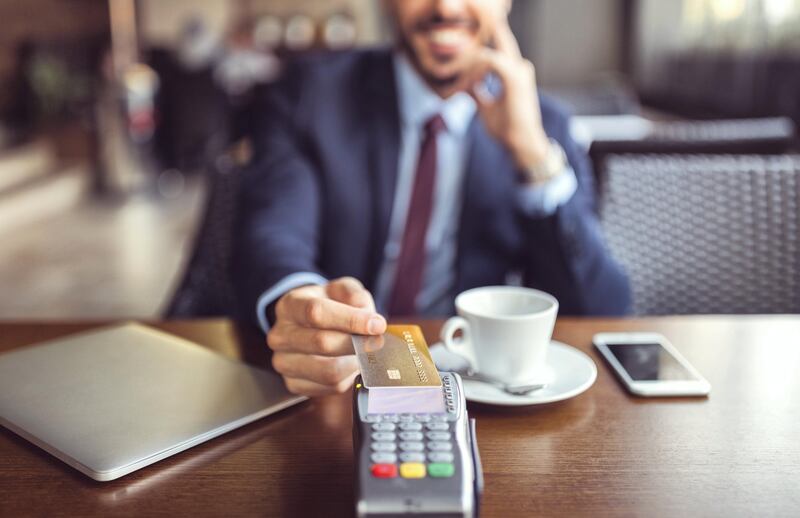The Cash uprising is upon us. Its agenda: safeguarding the use of cash. And I understand why.
Given a choice, most of us prefer handling less physical money. Consumers in Europe paying using a mobile device – a wearable, tablet or smartphone – tripled in the past year to 54 per cent of them. Visa knows this from questioning 36,000 online participants as part of its 2016 Digital Payments Study.
But this technology is costing us.
Going contactless is especially problematic – this is where you make a physical purchase, but don’t punch in your PIN; instead you wave your card, key fob or smartphone over a reader, and the payment is processed.
It has both halved the amount of time at the till and increased mindless, money-depleting translations. The retail world is salivating I’m sure.
MasterCard Canada has seen a 25 per cent higher spend when its contactless brand credit cards are used.
It’s our propensity to overspend in a shop more so than when shopping virtually that’s the issue here.
LivePerson, a platform that, in their words, transforms customer care from voice calls to mobile messaging – let’s just leave it at that - found that a huge 77 per cent of consumers surveyed give in to temptation when shopping in-store. Compare this with 50 per cent of those questioned giving in to urges while shopping online.
This makes perfect sense if you think about it (I hadn’t): we tend to do more targeted shopping online, or just research a product before going somewhere to buy it. Unfortunately, we spend a lot more than we plan to as the LivePerson data shows.
_________________
Read more from Nima Abu Wardeh:
How to create the ultimate lazy person's portfolio
Could you live without spending for a year?
Ten years later, the credit crunch's effects are still felt
_________________
Shops are more enticing – their clever displays incorporating behavioural tricks all lined up - just begging us to reach out and take one. It’s the small stuff that adds up. The enticing Dh50 here and Dh30 there, on show as you gear up to check out. You pick up the knick knacks, and with a flick of your wrist, hey presto, you’re perfecting your losing- track-of-spend magic trick.
Last summer, credit checking service, ClearScore, revealed that this had happened to two out of five shoppers surveyed in the UK.
It’s a problem that’s set to grow. Especially with banks in the UAE vying to bring out more digital payment options.
Yes, it’s convenient, but it’s also scary. It’s what it does to mindsets and habits that’s the worry.
Handing over cash is more emotional. We feel that pain in a different way to when we spend digitally. But we’re being actively discouraged from doing so – or even prevented in some cases.
Some outlets only allow cashless transactions. Like buses and tubes in some countries.
Others go further, not allowing cash transactions in coffee shops for example. Sweden, Belgium and Canada, are being lauded as leading the way to becoming cashless - more accurately, less-cash societies.
Not everyone is happy. Overspend aside, there are people who are not able to go cashless. Perhaps there’s an aversion – pensioners for example, who are uncomfortable with the technology – or the underbanked as the official terminology goes; those who have poor access to mainstream financial services normally offered by retail banks. Then there’s the unbanked. Like migrant cash-in-hand workers.
This is part of what the Cash Uprising is tackling. Heard of it?
It’s a loose coalition of interests in Sweden.
The group is made up of a number of vested interests - the ATM and cash-transportation industries - as well as some small business owners, immigrants and pensioners.
Last summer, the Swedish deputy finance minister took delivery of a petition signed by 136,000 pensioners asking the government to safeguard the use of cash. They argued not everyone has access to a bank account, and citizens have a right to decide how they pay for what they need. This I agree with.
Handing over control of how we pay for things has other ramifications too.
Like being prevented from spending on things as we choose. This happened in 2010, when Visa and MasterCard blocked all donations to Wikileaks, and since then reportedly blocked payments to a number of virtual private network services.
The big picture of going cashless includes the threat of disempowering sections of society that find it challenging to embrace new technology, handing over control of how we spend our money, and what I started with: being sucked into overspend.
Each of these is a danger. Which are you willing to risk? I realise that you’re probably looking at where your own interest lies. Fair enough. So here are my thoughts for you: beware the ping of electronic transactions I say. Get your cash out. When it’s gone, stop spending. Cash, not ping, is king.
Nima Abu Wardeh is founder of cashyme.com. Share her journey on finding-nima.com






